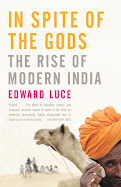-proflebras.ifrance.com
WHICH CAME FIRST, CREDIBILITY OR LEGITIMACY?
The credibility of the WTO has regressed since the days of GATT, its predecessor, for today its affairs are plagued with contentions of legitimacy and hegemonic tendency. It is not easy to pinpoint where matters went wrong, although it may help to start with what is wrong. Unless an organization conducts affairs in a legitimate way, it cannot build, nor sustain credibility, in which case its purpose for existence is void. Cecilia Albin has condensed the issue of WTO legitimacy to two questions; does the WTO actually attain legitimacy from its decision making and negotiation procedures, and how have these same procedures contributed to setbacks in the organization? (757).
First, we must define legitimacy, in order to analyze the issue in a uniform fashion. The final outcome of WTO operation is the trade agreements made between nations, and since these agreements are forged through a series of processes, we can review each individual component. The main building block of legitimacy for the WTO is the series procedures taken to build consensus. "Procedures refer broadly to mechanisms used in the negotiation process to come to an agreement. They encompass formal, explicit rules and practices as well as more diffuse or informal ones"(Albin 758). The WTO website proclaims that the format for operation is a rules-based system, where the rules are borne from the agreements that nation-states reach after negotiation..Formal, explicit rules are in correlation with this system, but the diffuse, informal rules leave opportunity for faction and bias.
Albin supports the claim that brainstorming of new ideas and bargaining actually takes place at the exclusive green room caucuses which are usually convened by either the director-general or a committee chairperson. Inter-mixed with these caucuses are other informal meetings where "key players" meet as well as other "off the record plenary meetings open to all members" (761). Nevertheless, Why does the WTO need to any have any off the record meetings? For an organization of its size and far-reaching influence, any off the record affairs bring into question the transparency of its processes. Albin notes that all organizations, need the flexibility of some informal discussions, but it becomes troublesome if informality plays too large a role, as is the case at the WTO. The WTO website even points out, that informal meetings have a more decisive role than formal ones.
Informality in itself means that there are no set guidelines to which an affair must adhere to and the parties involved are responsible for drawing their own boundaries, or not. Throughout this analysis, one must not forget that nation-states have diverse interests and often use the equivalent retaliation strategy in dealing with one another. This results in only friendly nations being invited to informal meetings which may or may not affect them, and thus a total loss of the quality of fairness in the procedures. "The wide scope for informal and ad hoc procedures clearly favors the more powerful and influential members in the developed world" (Albin 762).
Informality essentially creates an atmosphere where fair practices such as equal representation are disregarded, and thus representation is based on superficial values like national wealth and commanding leaders. It is not that these values are superficial generally, rather that that they should not qualify any single nation for preferential treatment from an organization that claims to be democratic. As soon as superficial values replace democratic principles, illicit activities such as coercion and bribery can become rampant and even commonplace. For example, towards the end of the Uruguay Round, the US threatened to withdraw from the round table when developing countries hesitated to sign agreements on intellectual property rights and investments and services.
Works Cited
Albin, Cecilia. "Using Negotiation to promote legitimacy; an assessment of proposals for reforming the WTO." International Affairs 84.4 (2008): 757-75. Print.






No comments:
Post a Comment